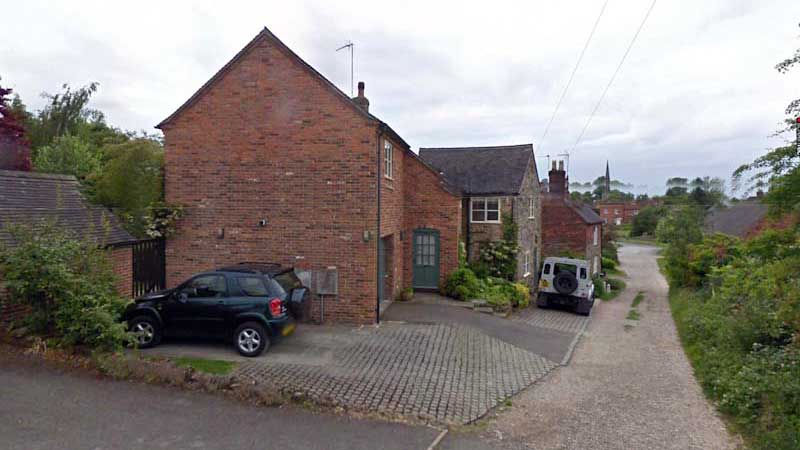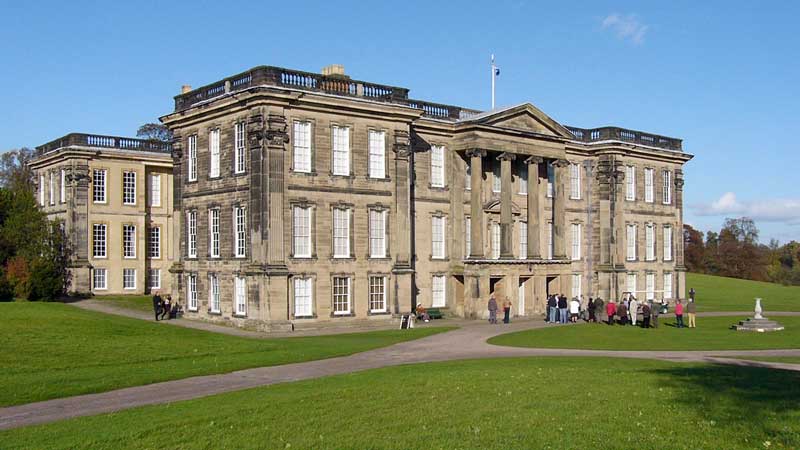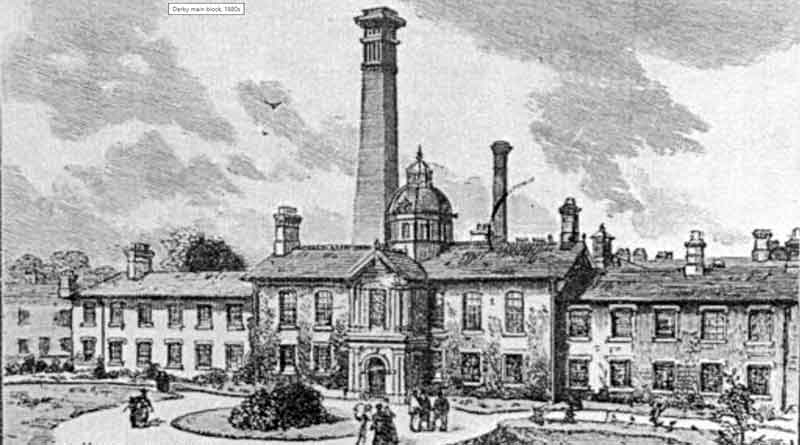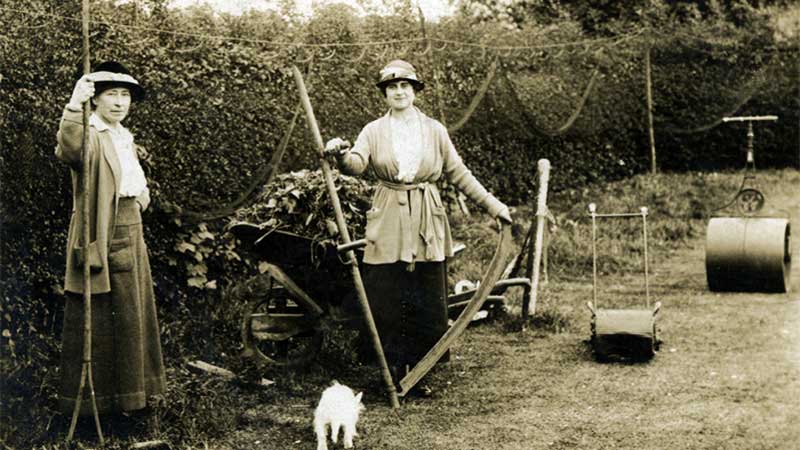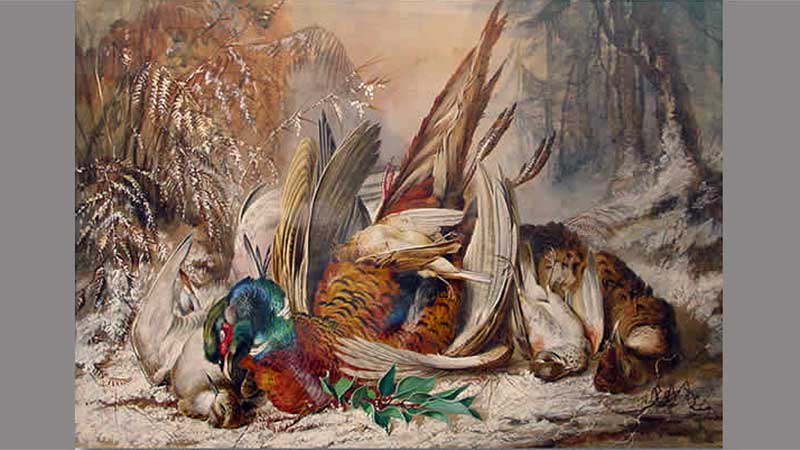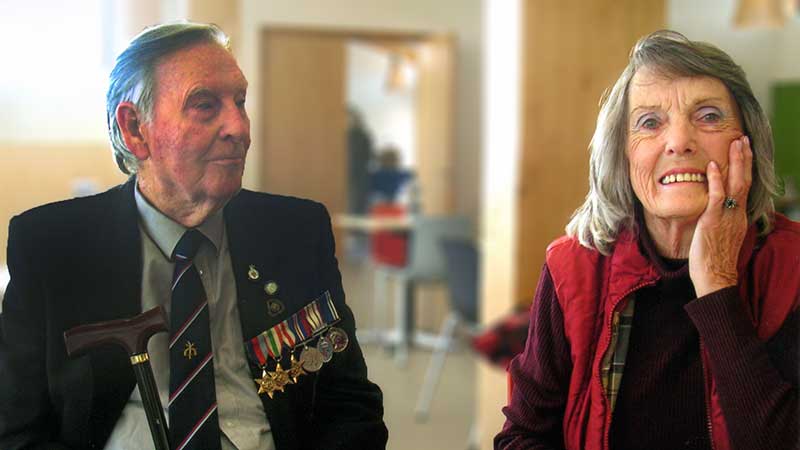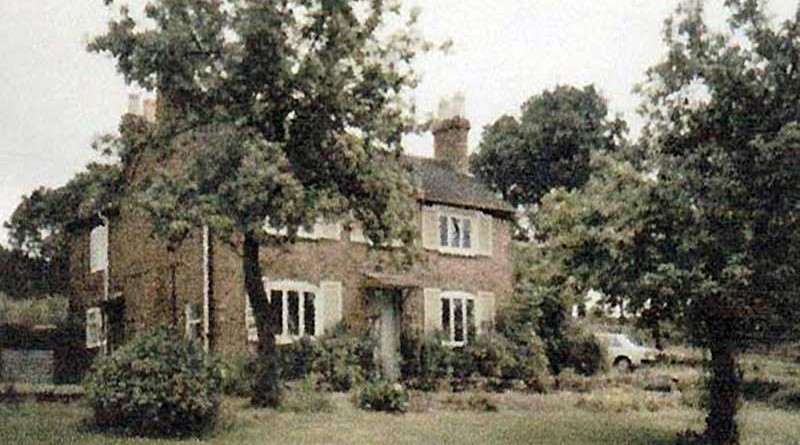-
/
This wonderful photograph was recently found in a drawer at Calke Abbey. It is proving to be quite a mystery. It had at some time in the past been torn in half, but Bryan has done an excellent job of digitally repairing it. The elderly lady in black at the front of the photo bears…
-
/
I have collected a considerable amount of local source material which may be useful to anyone engaged in genealogical research. Records The following records can be name searched and the results emailed back in Microsoft Word format:- The Census Returns for the following years 1841, 1851, 1861, 1871, 1881 & 1891 and coming soon 1901Except…
-
/
In 2018 I wrote about my ancestors “the Melbourne Dexters.” My gt x 3 grandparents were William Bull Dexter b 1785 in Shepshed and died 1850 in Melbourne and Jane Vigor Smedley born 1792 in Melbourne. William and Jane married in Melbourne Church on 4th March 1811. In 1837, William obtained a patent for applying…
-
/
Thomas was born in Ticknall in 1825 to John and Elizabeth Dunnicliffe.[1] (Elizabeth was part of the vast Banton family of Ticknall; this wouldn’t be the only connection Thomas has with the Bantons.) The Dunnicliffes go back, as far as I can tell, to Thomas’s grandfather Samuel who was born in Ticknall in 1754. Thomas’s…
-
/
Who lived at Calke Abbey? Were they Harpurs, Crewes, or Harpur-Crewes? The truth is, they all did. Over almost 300 years, from 1622 when Mr Henry Harpur Esq., third son of Sir John Harpur of Swarkestone Hall moved to Calke House, or Caulk Hall (it wasn’t only the Harpur Crewe family who changed) they used…
-
/
Martha and Thomas, both garden labourers, eventually become closely linked with one another, but each has a full life before they meet so we’ll look at each individually first. Martha Martha was born in 1805 in Ticknall to John and Sarah Saunders, one of 8 children.[1] Aged 21 in 1826 she married Samuel Hickinbotham, an…
-
/
Thomas was a Ticknall boy through and through, with the Mason line going back in the village to his g.g.grandfather, William in 1685.[1] Thomas as born in 1807 to Francis and Mary.[2] Like many of the men in Ticknall at the time, Francis was a Labourer.[3] Thomas followed his father and was a Labourer all…
-
/
Following on from my last article about illegitimacy, this piece looks at three cases of illegitimacy within the same family; mother, daughter and granddaughter. Each has a different conclusion. In the case of the granddaughter, we question how mothers of newborn babies were treated, when they were obviously struggling with what we would see today…
-
/
In the course of my research into the servants at Calke Abbey, I have come across numerous cases of illegitimacy. I’m sure we all know about the shame and stigma which was attached to single mothers in Victorian times and beyond, but it wasn’t always the case. Prior to a New Poor Law introduced in…
-
/
Before we get into the details of this elopement, let’s delve into the background of these two ‘love birds’ and try to discover a bit more about them. Thomas Buxton was born in Bradbourne Derbyshire in 1806. He was baptised in the Parish Church there on 17th Nov 1806[1] to Thomas, a moderately successful farmer,…
-
/
In 1857 in the early hours of Monday 12th January, on a cold, clear moonlit night, the quiet and peaceful atmosphere of the fields between Calke and Smisby was broken by the shouts, screams and thuds of a fight between about 12 poachers and 7 gamekeepers. Poaching was an almost normal part of rural life…
-
/
Visitors to Calke Abbey are sometimes puzzled by the names that occur in the last few generations of the Harpur Crewe family; for instance Airmyne and Vauncey. They seem to have been revived by Sir John, the 9th baron, who appears to have had an interest in the family background. Airmyne Most sources seem to…
-
/
Winifred Harpur Crewe, always known as Winnie, was born into a privileged life in 1879. The second daughter of Sir Vauncey Harpur Crewe, Bart., she spent much of her childhood happily at Calke Abbey with her parents and siblings, one brother and three sisters. Winnie’s life followed the usual and expected pattern of the “gentry”…
-
/
The Cruiser HMS Neptune sank with the loss of 764 officers and men on the night of 19 December 1941. Just one man was rescued by an Italian torpedo boat, after 5 days in the water. Among those missing presumed dead was John Olivers brother, 20 year old Thomas Oliver. The boat went down as…
-
/
The clock was made by John Whitehurst Senior (1766-1834) of Derby – a notable clockmaker – in 1813. Our clock is a particularly rare example of Whitehurst’s work due to its small size. For the technically minded the clock is a two train chair turret clock consisting of an armchair strike movement with a pin wheel…
-
/
Delilah (known as Dellie) Boswell was born in Wheldon, Northants, in 1800, a member of the well-known Boswell gypsy family. The family were allowed to camp in Calke Park – a rare privilege at a time when the Calke Abbey Estate was a very private place – and were welcome visitors to the Abbey. Delilah…
-
/
William Dexter was born in 1818 in Melbourne, Derbyshire, to parents William Bull Dexter of Shepshed and Jane Smedley of Melbourne. William and Jane were married in Melbourne Parish Church on 4 March 1811. Jane’s parents John Smedley and Mary Toone are buried in Melbourne Baptist cemetery. At a young age William was an apprentice…
-
/
Around three years ago the clock at St Georges Church Ticknall stopped chiming. After several attempts to rectify the problem it was decided that we needed to call in expert help to solve the problem. Smith of Derby is a well known and respected firm of clockmakers and so we consulted them. It was then…
-
/
The 2016 Annual General Meeting of the Neptune Association was held at the National Arboretum at Alrewas. Captain Craig Mearns from the Clyde Naval Base HMS Neptune attended and the meeting concentrated on the search for and discovery of the wreck of the Neptune. A service was held for HMS Neptune and HMS Kandahar at…
-
/
It’s surprising what you can find out from the comfort of an armchair. All manner of weird and wonderful stories can be found in old local newspapers, which can be looked up on the internet. Most present some sort of human interest. And all the more interesting when it involves your own family! Mrs Armitage’s…
-
/
Canadians Jane Roberts and husband Malcolm are in Ticknall exploring the places where Janes ancestors lived and worked in the days when beer, bricks, malt, pottery, coal, lime, bread, tailoring, education and veterinary services (to name but a few) were all sourced locally. Janes ancestors include two prominent locals Rowland Ordish and William Garrard who…
-
/
Might you still have Dexters in your midst in the lanes of Ticknall? The last Dexters to live in Ticknall (or rather the last people named Dexter) were probably Alfred and Helena Dexter who fittingly lived in Dexter’s Cottage until this burned down in the mid 1960s. Dexter’s House (108 Main Street) was built near…
-
/
The Dexter family were in Ticknall from at least the early years of the 18th century. This same family is now spread across the country and across the globe. The name Dexter itself may have died out in Ticknall in the 1960s. But it is a fair bet that their descendants, via the female line,…
-
/
The band played and church bells rang out on Sunday, 18 May 2014 in honour of one of Ticknalls best known sons Sgt. John Smith VC. Ticknall Parish Council hosted an event to unveil a plaque in honour of Sgt. John Smith VC of the Bengal Sappers & Miners. The plaque is the only one…
-
/
John Smith, the son of a shoemaker, was born in Ticknall in 1814, and lived in a cottage between 57 and 69 Ashby Road. The cottage is no longer on the site, which is now a field between the two houses. John Smith went to India and joined the Bengal Sappers & Miners, and saw…
Family History
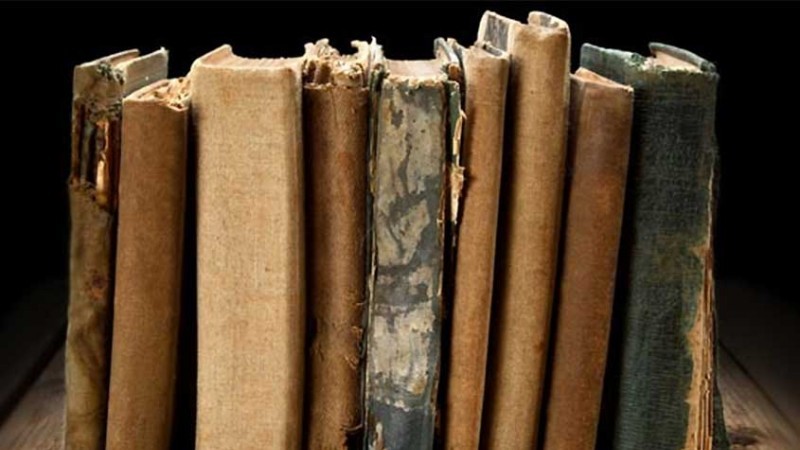
Does your family story have a Ticknall connection?




